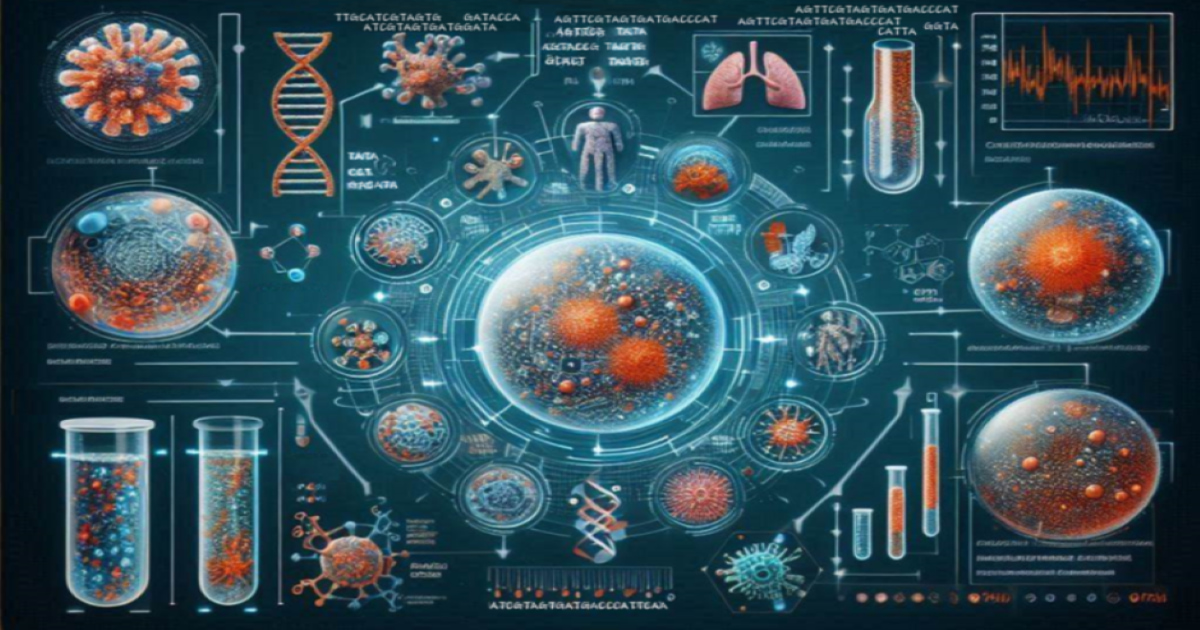Microbiomes in Health and Disease
A topical collection in Microorganisms (ISSN 2076-2607). This collection belongs to the section "Microbiomes".
Viewed by 8891
Editor
Interests: microbiome; molecular microbiology; metagenomics; omics; biostatistics; next-generation sequencing; clinical research; bioinformatics; biotechnology; system biology; grand challenges
Special Issues, Collections and Topics in MDPI journals
Topical Collection Information
Dear Colleagues,
The complex and dynamic relationship between hosts and their associated microbiomes has emerged as a critical factor in understanding the pathogenesis and progression of various human diseases. Recent advancements in high-throughput omics technologies have enabled a more comprehensive understanding of this complex system, providing novel insights into the molecular mechanisms underlying host–microbiome interactions and their influences on health and disease.
From metabolic disorders like obesity and diabetes to autoimmune diseases, neurodegenerative conditions, and even cancer, the microbiome is now recognized as a key player in both the onset and progression of numerous health conditions. Furthermore, the gut–brain axis has highlighted the intricate communication between the microbiome and the central nervous system, opening new avenues for understanding mental health and neurological disorders.
In addition to its role in human health, the microbiome also holds promise for therapeutic innovation. Emerging treatments such as probiotics, prebiotics, synbiotics, and fecal microbiota transplantation are being explored as novel strategies to restore microbial balance and improve patient outcomes. However, significant gaps remain in our understanding of the mechanisms underlying microbiome–host interactions, the factors influencing microbial diversity, and the long-term effects of microbiome-targeted therapies.
This topical collection aims to bring together groundbreaking research that explores the complex relationships between microbiomes and human health, as well as their implications for disease prevention, diagnosis, and treatment. We welcome contributions that advance our knowledge of microbiome science, from basic research to clinical applications, and provide insights into how microbiomes can be harnessed to improve human health.
- Human microbiome
- Gut microbiome
- Host–microbiome interactions
- Gut–Brain Axis
- Prebiotics, Probiotics, Synbiotics, and Postbiotics
- Metabolic Disorders
- Immune System
- Fecal Microbiota Transplantation
- Autoimmune Diseases
- Therapeutic Interventions
- Mcrobiome-associated diseases
- Omics technologies
- Multi-omics integration
- Microbial network
- Bioinformatics and computational tools
Prof. Dr. Pabulo H. Rampelotto
Collection Editor
Manuscript Submission Information
Manuscripts should be submitted online at www.mdpi.com by registering and logging in to this website. Once you are registered, click here to go to the submission form. Manuscripts can be submitted until the deadline. All submissions that pass pre-check are peer-reviewed. Accepted papers will be published continuously in the journal (as soon as accepted) and will be listed together on the collection website. Research articles, review articles as well as short communications are invited. For planned papers, a title and short abstract (about 250 words) can be sent to the Editorial Office for assessment.
Submitted manuscripts should not have been published previously, nor be under consideration for publication elsewhere (except conference proceedings papers). All manuscripts are thoroughly refereed through a single-blind peer-review process. A guide for authors and other relevant information for submission of manuscripts is available on the Instructions for Authors page. Microorganisms is an international peer-reviewed open access monthly journal published by MDPI.
Please visit the Instructions for Authors page before submitting a manuscript. The Article Processing Charge (APC) for publication in this open access journal is 2700 CHF (Swiss Francs). Submitted papers should be well formatted and use good English. Authors may use MDPI's English editing service prior to publication or during author revisions.
Keywords
- bioinformatics
- biomarker discovery
- integrative data analysis
- interactome
- host–microbiome interactions
- omics datasets
- omics technologies
- metabolomics
- metagenomics
- metaproteomics
- microbiome-associated diseases
- molecular crosstalk
- multi-omics
- personalized medicine
- translational applications








